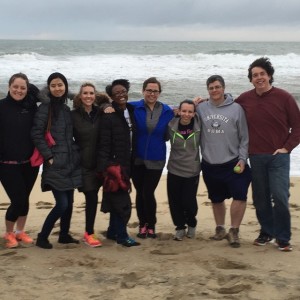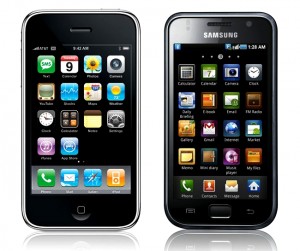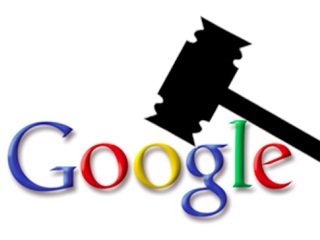A post from our student blogger Megan
“California Love,” “California Dreamin,’” “California Girls,” “Like a California King,” and “Californ-I-Ay.” These are just a few of the dozens of songs that have been written about the thirty-first state admitted to the union. With so many songs written about it, there must be something special about California, and in fact, there is. Sure, there’s the beautiful topography, the pristine beaches, and the endless drops of sun all year round, but what else? The MSPL received an invitation from Notre Dame’s William K. Warren Foundation Dean of the College of Science, Gregory P. Crawford, to visit Silicon Valley for a full week to find out what really makes California unique. We learned that the Golden State is more than just a pretty place—it’s all about hard work, passion for what you do, and an effortless vibe of excitement.
Dean Crawford is relocating to California to launch a strong Notre Dame presence on the West Coast. After all, California boasts the second highest number of Notre Dame Alumni in the entire United States. But in addition to this fact, Notre Dame has solidly established itself as a competitive science, technology, and business university—three qualities that fit like a glove with NorCal’s high-tech atmosphere (think Google, Facebook, and a whole host of start-ups that have hit the area like a spontaneous meteor shower within the past decade and a half). Dean Crawford serves as a charismatic ambassador between the halls of gold and blue in Indiana and the glistening sunshine soaked techie industry in San Francisco. During a brief November, 2014 meeting with the MSPL, Dean Crawford shared his plans for the ND-CA alliance. A casual comment was thrown out suggesting that Dean Crawford host the class in California during the second semester of the program. Dean Crawford immediately jumped on board. Ten weeks later we boarded a plane and watched the frigid snow of South Bend disappear, touching down a few hours later in beautiful San Francisco on a warm Sunday afternoon.
The MSPL cohort visited multiple private law firms including Morrison Foerster, and companies such as Qualcomm and eBay. MSPL’ers also got to spend time with Notre Dame alums that are now living and working in NorCal. Tim Connors informally lectured to the group on the basics of venture capitalism and John McNelis discussed the life of a patent attorney. The week-long Cali trip included some fun events like a visit to Half Moon Bay and some of the best ice cream sandwiches we’d ever tasted in the Valley.
The California trip was fun, but perhaps the most surprising thing about Silicon Valley was the immediate rush of intoxicating intellectual satisfaction that the people of NorCal emanated. Everyone that we were introduced to from IP lawyers to tech-savvy engineers loved what they did, loved where they lived, and exuded an air of confidence and happiness. Silicon Valley, you see, is the land of the start-up. Some new businesses rise up and some don’t make it off the ground. But regardless of whether your venture makes it in this area, at least you tried. And you don’t stop there. You keep going until you do succeed.
I once had an undergrad geography professor who hailed from California and he told us time and time again, “everything you hear about California is true.” He was right. California is one of those rare places that not only looks beautiful on its surface, but is truly filled with inspiring people who have big dreams. It might sound cliché, but the exposure to such a unique area of the country has changed the way that I think. If you have an idea, chase it. If you succeed, great; if you fail, try again. But whatever you do, have the courage to do it, not just dream about it.


